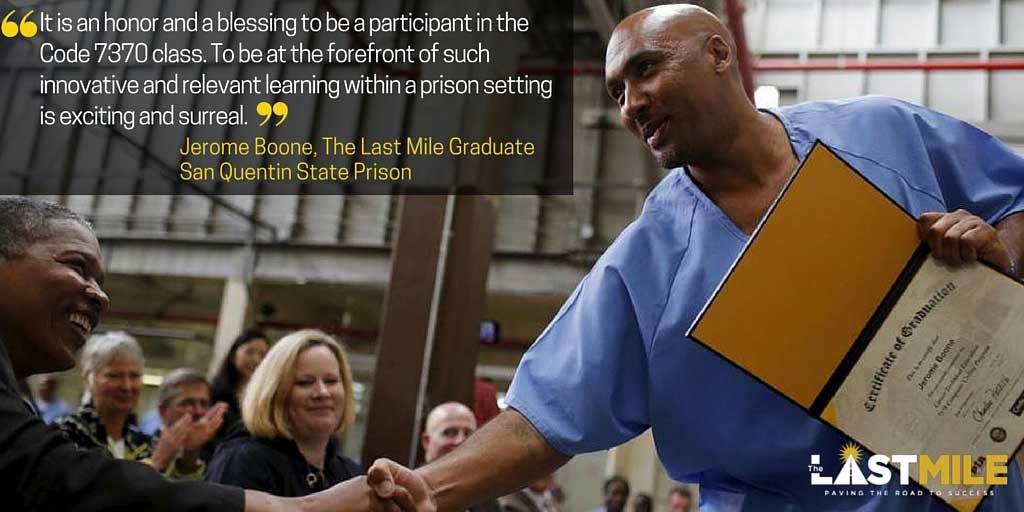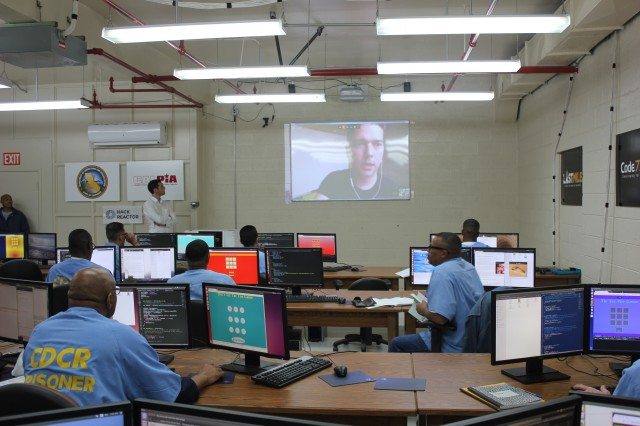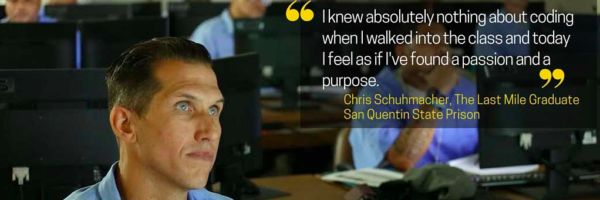We hear from Michael Taylor, founder of the Code 4000 initiative, who explains how he hopes to replicate the success of a US Prison Coding project in the UK.
The idea that teaching people to code is a valuable skill to learn in today’s world is nothing new, and thankfully there are a whole host of different projects already out there aimed at doing just that. But how many of those projects are aimed specifically at prisoners? The answer is, not many. Unsurprisingly, the majority of them are based in the US. What is a little more surprising is that longest running and most successful of these projects operates out of San Quentin, one of the world’s most notorious prisons.
I first read about The Last Mile at San Quentin earlier this year, about the same time as the UK government launched its far-reaching prison reform programme, a large portion of which was focussed on re-educating and re-training prisoners. It wasn’t too difficult therefore to engage the Ministry of Justice in the question of teaching code, and to organise a workshop in London to listen to The Last Mile story first hand.
This also gave those who attended the opportunity to meet the amazing Kenyatta Leal, a graduate of the San Quentin project and now global ambassador for how interventions such as these can transform people’s lives for the better.

Since its inception, The Last Mile has seen some impressive results. To date they have had 72 graduates with a zero reoffending rate. This is all the more remarkable when you consider that the usual recidivism rate at San Quentin is 67%, and that the current cost of the overcrowded prison services in California runs at over $9B. By investing in prison education, you’re not only turning around the lives of individuals and improving the prospects of the communities to which most of them will eventually return, you are also saving the state and taxpayer money.
So the Code 4000 idea is simple. We want to build a similarly successful programme in the UK to those already operating in the US and elsewhere. Starting with a pilot of sixteen prisoners at HMP Humber, we want to build a network of coding workshops in UK prisons, with the aim of giving people a second chance, turning their lives around, and training them in a skills set which has a high demand in the UK (and global) jobs market.

The development of each prison workshop is split into four stages. Stage 1 is a training phase, and begins with teaching prisoners the basics of HMTL, CSS, and Javascript, before moving on to more advanced concepts such as Git, TDD, MVC, databases and full stack development. Stage 2 allows successful graduates of Stage 1 to then work on real-world projects for external clients, which will also provide a modest income to the project. Stage 3 will then see them working for clients in the real world on temporary day release, while Stage 4 aims to help them find full time employment as developers.
Of course, this is a pretty tall order, made all the more difficult when you consider that prisoners selected for the programme will be learning web development skills without direct access to the internet.
This is where we need your help.
Training sessions will be led by an on-site classroom facilitator, with access to course books, computers and offline training videos. However these need to be complemented by industry experts who can dial in via Google Hangouts/Skype to discuss various topics with the class directly, or who can help remotely with simple Q&A and code reviews posted onto a dedicated platform. This involves only a couple of hours of volunteer time a month.
Even if you cannot sign up to volunteer over a long period, even offering a couple of month’s worth of support would be a huge help. If you think you could help out with that, and you know something about HTML/CSS/JS, then please do get in touch. We are also looking for corporate sponsors to help meet our modest costs in running the project. Again if you think your company could help out, please contact us.
Finally, a word about us. Code 4000 is not only the first initiative of its kind in the UK, but also in Europe. We are a UK-based non-profit CIC. We are working with close support from the National Offenders Management Service (NOMS), who have kindly offered to help sponsor the first pilot at Humber, and with help from the Ministry of Justice. You can reach us via [email protected] OR https://www.code4000.org/en


